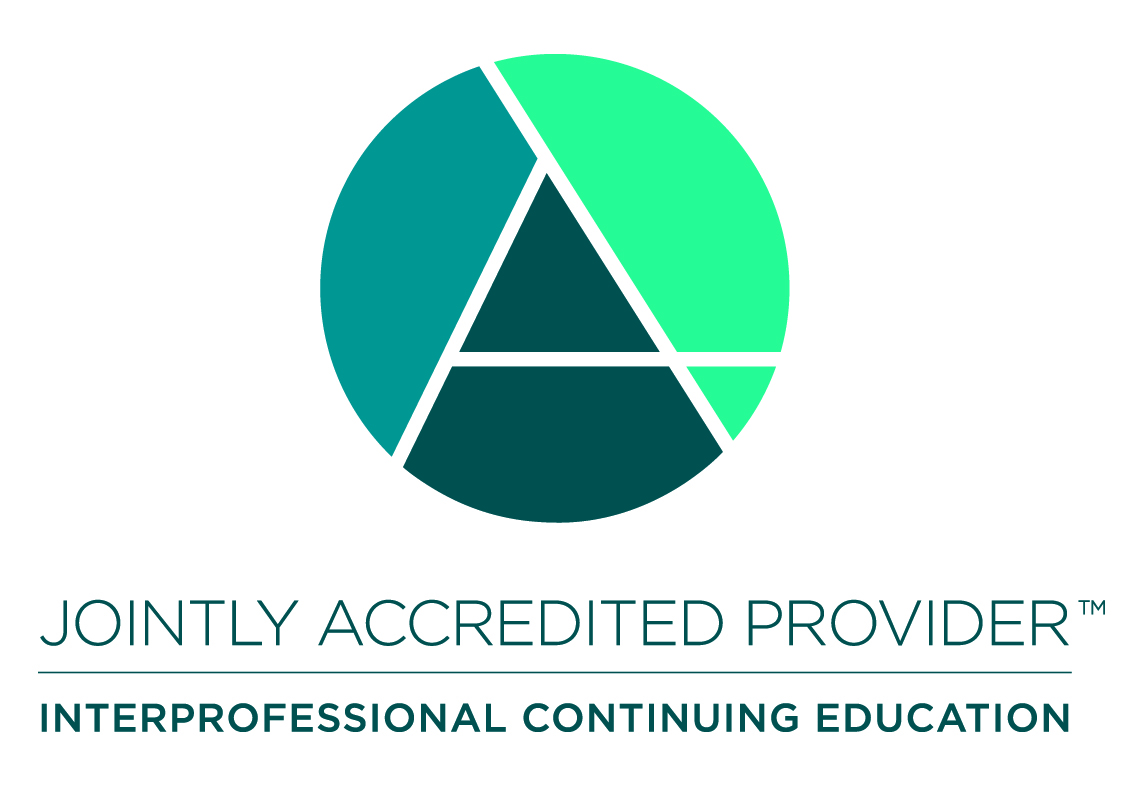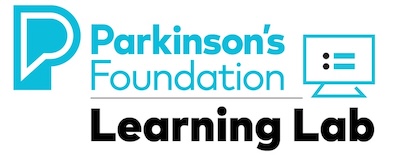Interprofessional Care Team Approach to Cognitive Changes
 This 7-part online course focuses on cognitive concerns and challenges associated with Parkinson’s disease (PD).
This 7-part online course focuses on cognitive concerns and challenges associated with Parkinson’s disease (PD).
In each part of the series, learners will hear from a health professional representing one of the seven outlined disciplines, who will discuss cognition in PD from their professional perspective, while encouraging interprofessional communication and collaboration, in order to optimize care within the Parkinson's community.
Syllabus | |
Introduction to Interprofessional Care Team Approach to Cognitive Changes Video Movement Disorders Specialist Video Neuropsychology Video Nursing Video Occupational Therapy Video Physical Therapy Video Social Work Video Speech-Language Pathology Video Evaluation Credit and Certificate Claiming | |
Target Audience
This activity is designed for:
- Physicians
- Nurses
- Physical Therapists
- Occupational Therapists
- Speech-Language Pathologists
- Psychologists
- Social Workers
... and any other health care professional who is interested in learning more about the cognitive concerns and challenges associated with PD.
Learning Objectives
At the end of this activity, the learner will be able to:
- Differentiate between mild cognitive impairment and dementia in persons with Parkinson’s disease (PD).
- Describe the role of neuropsychological testing in evaluating cognitive performance, competency, and capacity.
- Identify pharmacological challenges in managing cognitive impairment in Parkinson’s disease.
- List non-pharmacologic strategies for managing changes in cognition in individuals with PD.
- Discuss the domains of cognition and how changes in each cognitive domain may manifest clinically within different professional disciplines for people with Parkinson’s.
- Apply strategies for building an interprofessional care team to provide care to individuals with Parkinson’s disease and their families and care partners regarding changes in cognition.
Parkinson’s Foundation adheres to the ACCME’s Standards for Integrity and Independence in Accredited Continuing Education. Any individuals in a position to control the content of a CE activity, including faculty, planners, reviewers, or others, are required to disclose all relevant financial relationships with ineligible entities (commercial interests). All relevant conflicts of interest have been mitigated prior to the commencement of the activity.
Elaine Book, MSW, RSW
Heather Cianci, PT, MS, GCS
Darla Freeman, SLPD, CCC-SLP
Jennifer Goldman, MD, MS
Jenna Iseringhausen, BSN, RN
Travis Turner, PhD
Julia Wood, MOT, OTR/L
Ariane Carpentier, MD
Erin Cecchi, MSW, LCSW
Annise Claude, PA-C
Heshan Fernando, PhD
Kristen Matulis, DNP, APRN, AGNP-C
Jenna Iseringhausen, BSN, RN
Lisa Hoffman, MA
 In support of improving patient care, Parkinson's Foundation is jointly accredited by the Accreditation Council for Continuing Medical Education (ACCME), the Accreditation Council for Pharmacy Education (ACPE), and the American Nurses Credentialing Center (ANCC), to provide continuing education for the healthcare team.
In support of improving patient care, Parkinson's Foundation is jointly accredited by the Accreditation Council for Continuing Medical Education (ACCME), the Accreditation Council for Pharmacy Education (ACPE), and the American Nurses Credentialing Center (ANCC), to provide continuing education for the healthcare team.

This activity was planned by and for the healthcare team, and learners will receive 3.50 Interprofessional Continuing Education (IPCE) credit for learning and change.
Physicians
Parkinson’s Foundation designates this enduring activity for a maximum of 3.5 AMA PRA Category 1 Credit(s)™. Physicians should claim only the credit commensurate with the extent of their participation in the activity.
Nurses
Parkinson’s Foundation designates this enduring material for a maximum of 3.5 ANCC contact hours. Nurses should claim only the credit commensurate with the extent of their participation in the activity.
Psychologists
 Continuing Education (CE) credits for psychologists are provided through the co-sponsorship of the American Psychological Association (APA) Office of Continuing Education in Psychology (CEP). The APA CEP Office maintains responsibility for the content of the programs. 3.50 CE hours.
Continuing Education (CE) credits for psychologists are provided through the co-sponsorship of the American Psychological Association (APA) Office of Continuing Education in Psychology (CEP). The APA CEP Office maintains responsibility for the content of the programs. 3.50 CE hours.
Social Workers
 As a Jointly Accredited Organization, Parkinson’s Foundation is approved to offer social work continuing education by the Association of Social Work Boards (ASWB) Approved Continuing Education (ACE) program. Organizations, not individual courses, are approved under this program. State and provincial regulatory boards have the final authority to determine whether an individual course may be accepted for continuing education credit. Parkinson’s Foundation maintains responsibility for this course. Social workers completing this course receive 3.50 ASWB continuing education credits.
As a Jointly Accredited Organization, Parkinson’s Foundation is approved to offer social work continuing education by the Association of Social Work Boards (ASWB) Approved Continuing Education (ACE) program. Organizations, not individual courses, are approved under this program. State and provincial regulatory boards have the final authority to determine whether an individual course may be accepted for continuing education credit. Parkinson’s Foundation maintains responsibility for this course. Social workers completing this course receive 3.50 ASWB continuing education credits.
Available Credit
- 3.50 AMA PRA Category 1 Credit™
- 3.50 ANCC
- 3.50 APA
- 3.50 ASWB ACE
- 3.50 IPCE Credit™
- 3.50 Participation
Price
To register for this course, or to begin/continue the lesson, please click the "Take Course" button above.
Instructions for the course will follow.
Cancellation Policy
Cancellations can be made in advance of beginning the self-study course. Full registration fees will be returned minus credit card fees. Once you’ve started the course, there will be no refund available. In the event that the Parkinson’s Foundation must cancel the online course, all registration fees will be fully refunded. Parkinson’s Foundation reserves the right to cancel the course due to unforeseen circumstances.

 Facebook
Facebook X
X LinkedIn
LinkedIn Forward
Forward